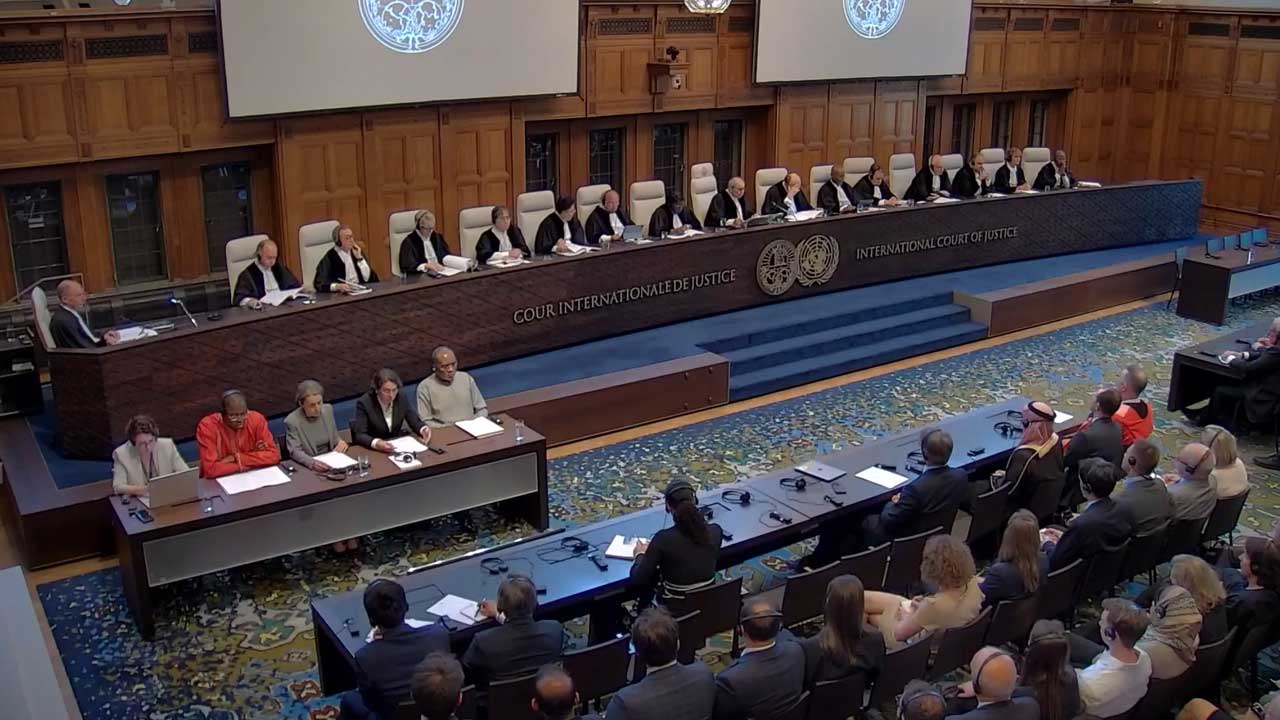Two months into Israel’s latest siege of Gaza, an American official argued to the International Court of Justice that Tel Aviv is within its rights to deprive Palestinians of food, medicine, and other aid.
Joshua Simmons, a senior legal adviser at the US State Department, argued to the World Court that international law “does not impose any unqualified obligations on an occupying power” with respect to humanitarian assistance provided by the UN, international organizations, and third states.
The UN’s top court is holding five days of hearings to decide what obligations Israel has to the Palestinians under its military occupation. The UN General Assembly asked the court to consider whether Tel Aviv is required to allow the UN Palestinian aid agency, UNRWA, to bring food, medicine, and other basic survival needs into Gaza.
Simmons argued Tel Aviv was not required to work with UNRWA to ensure Palestinians have food and other essential goods. “There are serious concerns about UNRWA’s impartiality, including information that Hamas has used UNRWA’s facilities, and that UNRWA’s staff participated in the 7 October terrorist attack against Israel,” he said.
“Occupation law preserves an occupying power’s discretion to address its security interests, including the ability to curtail the activities of third states or organizations that are contrary to its security,” Simmons told the ICJ. “It is clear that Israel has no obligation to permit UNRWA specifically to provide humanitarian assistance.”
While Israel has repeatedly claimed that UNRWA employees participated in the October 7, 2023 Hamas attack on Israel, a UN inquiry found Tel Aviv was unable to substantiate the accusation.
Over the first two days of the session, a Palestinian official and representatives from several other nations argued that Israel was committing war crimes, including using starvation as a method of warfare.
On Tuesday, South Africa’s representative Jaymion Hendricks argued that “International law prohibits Israel from the use of starvation as a method of warfare, including under siege or blockade, Israel may not collectively punish the protected Palestinian population, which it holds under unlawful occupation.”
Israel has “deployed the full range of techniques of hunger and starvation, perfecting the degree of control suffering and death that it can cause through food systems, leading to this moment of genocide,” he added. “Despite the horrific attempts by Israeli officials to characterize them otherwise, Palestinians are human beings.”
While Tel Aviv did not send an official to mount a defense to the court, Israel did submit a written brief. It claimed that the case “is part of an abusive and systematic campaign that regrettably weaponizes international law, and international legal institutions, with the aim of depriving Israel of fundamental rights accorded to all sovereign states, including the right to defend itself.”
However, many Israeli officials have clearly stated that the goal in Gaza is to ethnically cleanse Palestinians from their homeland, and they would be willing to deny the population food to achieve that end.
The Israeli Defense Ministry recently opened an office dedicated to resettling Palestinians outside of Israel, while Finance Minister Bezalel Smotrich said that Tel Aviv could empty the Strip of Palestinians within a year by expelling 5,000 to 10,000 people per day.
Israel’s hawkish National Security Minister Itamar Ben Gvir said he discussed bombing Gaza’s remaining stockpiles of food with Republicans in Congress while on a trip to the US. The Israeli politician said his plan had support from the American lawmakers.
































